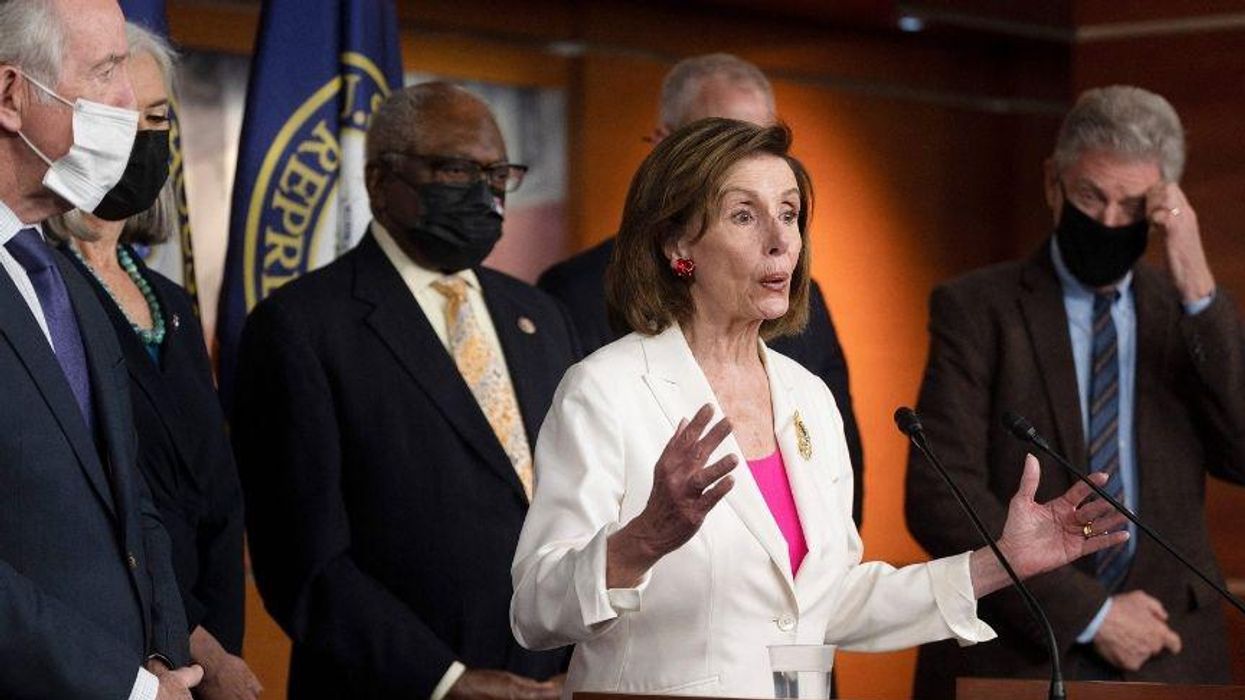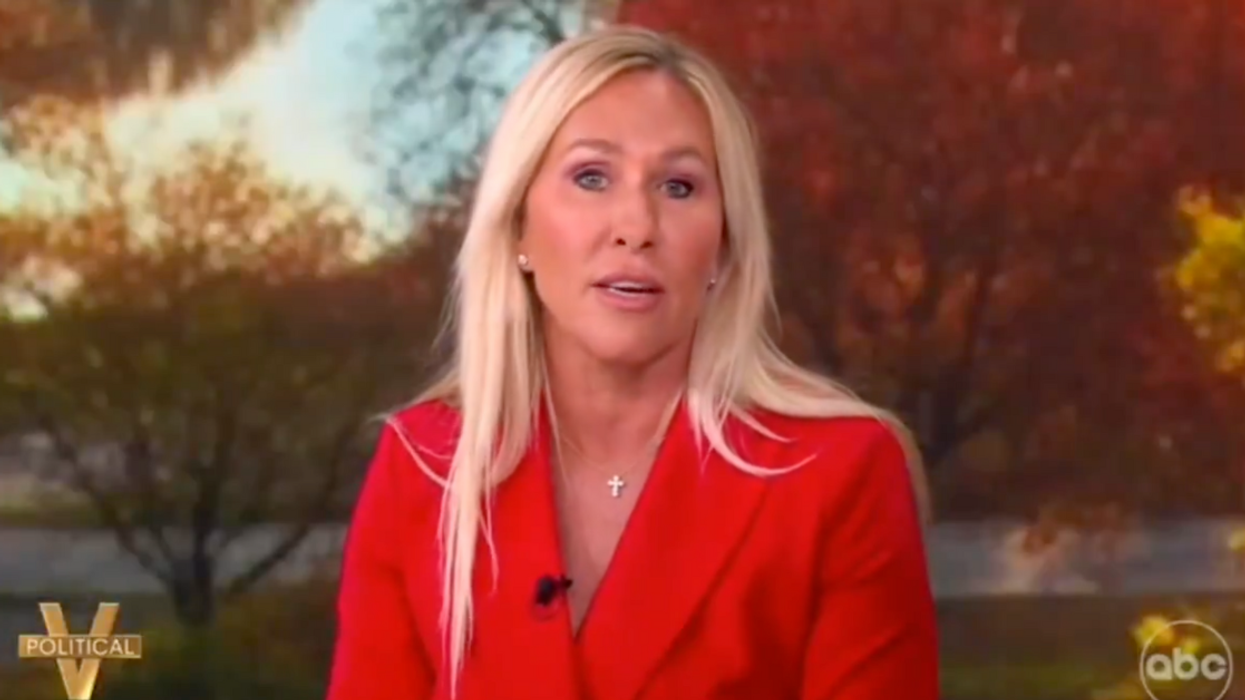In this era when democracy in America is in greater peril than any time since the 19th century, when the climate change clock is ticking down inexorably to unmitigated disaster, and global pandemics are now an everyday fact of life, it’s easy to doomscroll the news, seeing each headline as confirmation that the end is nigh.
I want to put the brakes on some of that thinking, especially as we go into a new political year. Not every setback means the sky is falling. Let’s explore, in a more disciplined way, how some “code red” situations might actually be politics as usual. I’ll identify three current and common anxieties over our politics and discuss whether they really are as bad as we’ve been led to believe.
If We Lose the House, We Lose the Republic!
Presently, and quite honestly, the midterms in 2022 don’t look very promising. Like the Virginia gubernatorial race, which has gone to the opposition party the last eight times a new president was elected, the House typically swings to the other side after one side has held power for a couple years. The reasons for this are as complicated as human nature, but when all one side has to do is point out the problems and failures of the other, it is a far easier sell.
Add to that a baked-in GOP advantage from gerrymandering (which might not be as severe as many had feared), and the thin, five-seat majority that holds Speaker Nancy Pelosi in power is unlikely to endure absent massive Democratic turnout. (Democrats of course will work very hard to keep this from happening, or at least from happening on a scale that makes recovery of the House in 2024 difficult, but should come at their odds clear-eyed as well.)
So if Kevin McCarthy becomes majority leader, is it the end of the world? In a word, no. A GOP House can make things very ugly for the Biden White House. It could seek revenge censures for two of its members who were stripped of their Committees. It could launch Benghazi-style inquiries into everything from Hunter Biden’s laptop to alleged “Deep State” actors in the Pentagon. It would almost certainly end the January 6 House Select Committee’s work, which means its members know they have to complete their report before January of 2023. It could even try to muddy the political waters by bringing bogus impeachment proceedings against President Biden to try and even the score for Trump.
Most of these things are performative, and the greatest damage they will do might be to the credibility of the GOP and the standing of Congress itself. At some point, the American public is going to tire of the trolling, lib-owning, and utter lack of legislative agenda and ask the GOP to actually govern instead of simply oppose and nay-say. The farther afield a GOP-led House takes things, the more the long-term reputation of the party will suffer. Indeed, a circus-like atmosphere in a Republican House for two whole years might substantially undermine their chances of retaking the White House in 2024. We already know that the GOP isn’t serious about governing; those two years might drive that point home with a sizeable number of voters.
In a GOP-led House, we would definitely experience legislative gridlock and should expect no new major pieces of legislation achievable by the Democrats until the next election cycle. But remember, we have seen this before in the second half of President Obama’s first term—and he was still re-elected in 2012.
They’re Taking Over Local Governments
Republicans have been far better at grassroots organizing (which in many ways is really “astroturfing” because it is funded and organized by larger groups and interests) and getting their loyalists in place in key positions such as school boards and county election boards. This has negative consequences for Democrats and progressive agendas nationwide for at least two reasons. First, narratives based on fear and division, as we are seeing with the successful attack on the non-existent teaching of “Critical Race Theory,” can motivate voters successfully to the polls. Second, voter suppression in the form of “neutral” decisions—say, to close or combine multiple polling stations in a county—can occur more or less under the radar.
But taking a step back to view the issue historically, we aren’t seeing something we’ve never seen before. Right-wing groups have always picked a cause—whether it’s school integration, abortion, same-sex marriage, or caravans of migrants—to help solidify their identity politics and turn out their frightened voters. Attacks on school curricula (“They’re indoctrinating our children!”) are as old as globalist (i.e. Jewish) conspiracies, which also tend to be about child exploitation. Fearmongers know that their message, when packaged as one seeking to save the children, can gain wider acceptance because it appears benevolent. Who wouldn’t want to protect children, after all?
Similarly, on voter suppression, prior to the passage of the Voting Rights Act, states in the South routinely made things difficult to impossible for Black and brown voters to exercise the franchise. It is not surprising, then, that following the gutting of the VRA by the Supreme Court in opinions over the last eight years, many states have again taken up the practice of voter suppression enthusiastically, throwing mud on Chief Justice Roberts’ naive belief that the problem had resolved itself.
Democrats can counter these moves through local activism and mobilization efforts as we have seen recently in Georgia under the heroic leadership of Stacey Abrams and her Fair Fight organization. Activists in every state in the country should be studying her success as a model for their own work ahead.
Without a Voting Rights Law, We’re Finished
I often see warnings that a failure to pass a voting rights bill at the national level in 2022 will lead to the end of our democracy. This is an understandable concern and position, especially given how aggressive many states have been at passing new restrictive laws. Moreover, these were pushed through quickly precisely because GOP legislatures want to prove they are tough on voter security despite the non-existent problem of election fraud fed by the steady yet false drumbeat of the former president.
Again, some historical perspective can help here. While many of these laws do in fact make it harder for Democrats to vote and to win, I truly can’t remember a time when this hasn’t been the case. If you think about it, our entire political system has been stacked, from Senate representation that favors small, rural, white states, to highly gerrymandered Congressional maps that put far more Republicans in the House than ought to be there. The story of our nation essentially has always been about one group in power (e.g. white, male, Christian, property owners) trying to keep all the other groups out.
On voting rights, we need to talk about a Plan B, mostly because while the filibuster remains in place, Republicans in the Senate will continue to successfully block any new law that might remove their inherent advantages in gerrymandering and poll access. That Plan B must identify and address critical points of failure and have us prepare to defend them where a national law would have otherwise.
These include ensuring that votes in heavily Democratic counties in key swing states are counted and cannot be thrown out by commissioners or GOP-controlled state legislatures. The places to watch and protect carefully include Detroit, Atlanta, Phoenix, Milwaukee, and Philadelphia. The road to the Senate majority and the presidency itself runs through these cities. Our time, resources and money should be spent specifically on shoring up Democratic governorships and secretaries in the states where these strongholds are, as well as safeguarding and turning out the vote specifically in these regions.
In short, we can keep the sky from falling by doing what we always have done: meeting the risks head on with determination and smarts, countering fear and division with activism and engagement, and above all not giving into despair or paralysis. Through these efforts and with such resolve, our national project can and will continue.
So take a deep breath, and soldier on into 2022.
For more political analysis, check out the Status Kuo newsletter.







 @realDonaldTrump/Truth Social
@realDonaldTrump/Truth Social





 @rootednjoyy/TikTok
@rootednjoyy/TikTok @rootednjoyy/TikTok
@rootednjoyy/TikTok @rootednjoyy/TikTok
@rootednjoyy/TikTok @rootednjoyy/TikTok
@rootednjoyy/TikTok @rootednjoyy/TikTok
@rootednjoyy/TikTok @rootednjoyy/TikTok
@rootednjoyy/TikTok @rootednjoyy/TikTok
@rootednjoyy/TikTok @rootednjoyy/TikTok
@rootednjoyy/TikTok @rootednjoyy/TikTok
@rootednjoyy/TikTok @rootednjoyy/TikTok
@rootednjoyy/TikTok @rootednjoyy/TikTok
@rootednjoyy/TikTok @rootednjoyy/TikTok
@rootednjoyy/TikTok @rootednjoyy/TikTok
@rootednjoyy/TikTok @rootednjoyy/TikTok
@rootednjoyy/TikTok
 @rootednjoyy/TikTok
@rootednjoyy/TikTok @rootednjoyy/TikTok
@rootednjoyy/TikTok @rootednjoyy/TikTok
@rootednjoyy/TikTok @rootednjoyy/TikTok
@rootednjoyy/TikTok @rootednjoyy/TikTok
@rootednjoyy/TikTok @rootednjoyy/TikTok
@rootednjoyy/TikTok @rootednjoyy/TikTok
@rootednjoyy/TikTok @rootednjoyy/TikTok
@rootednjoyy/TikTok @rootednjoyy/TikTok
@rootednjoyy/TikTok @rootednjoyy/TikTok
@rootednjoyy/TikTok
 @BarryMu38294164/X
@BarryMu38294164/X
